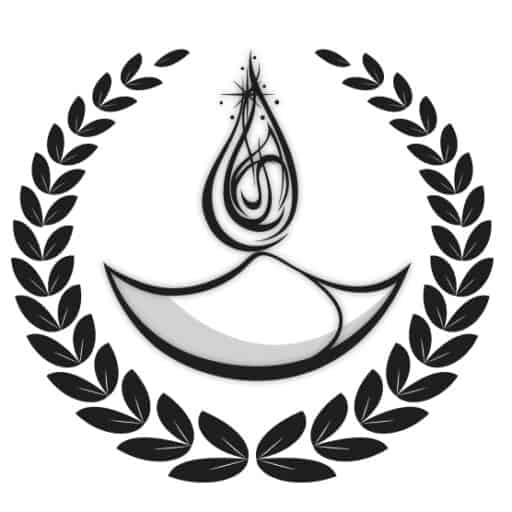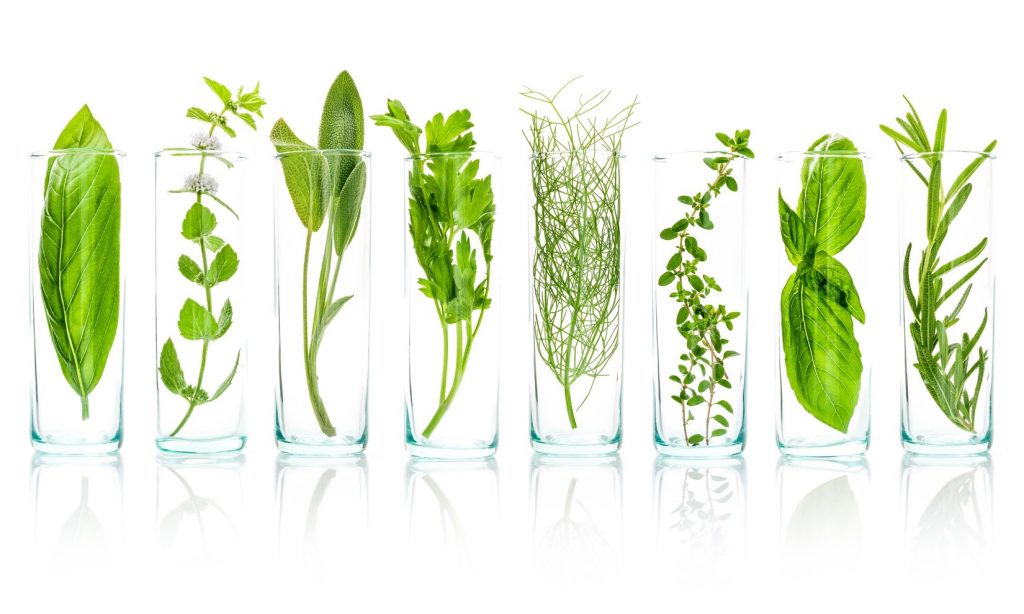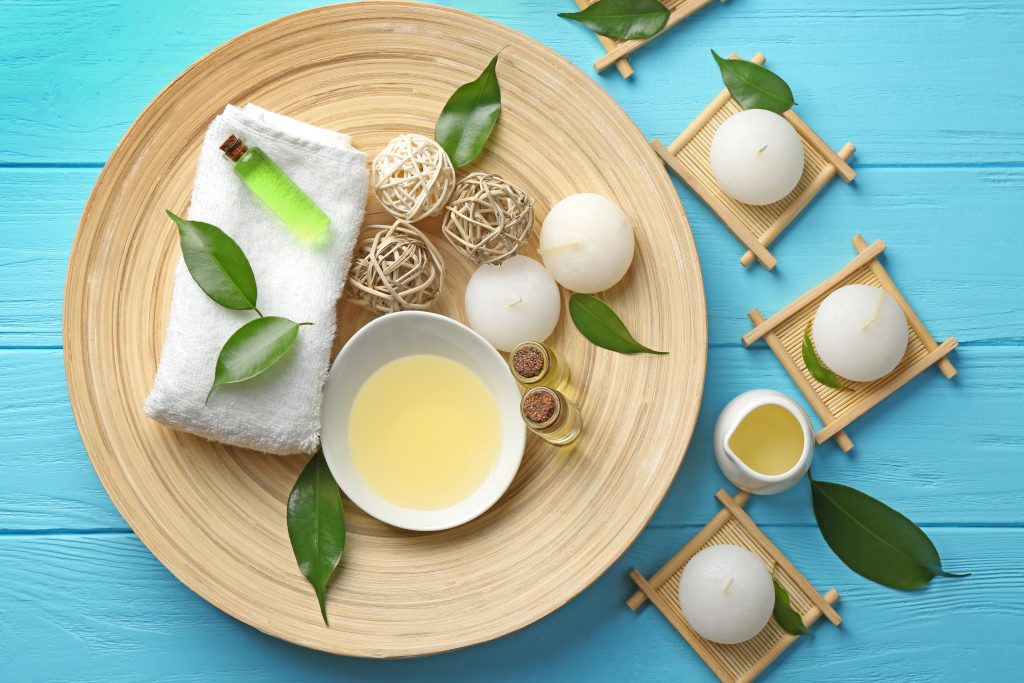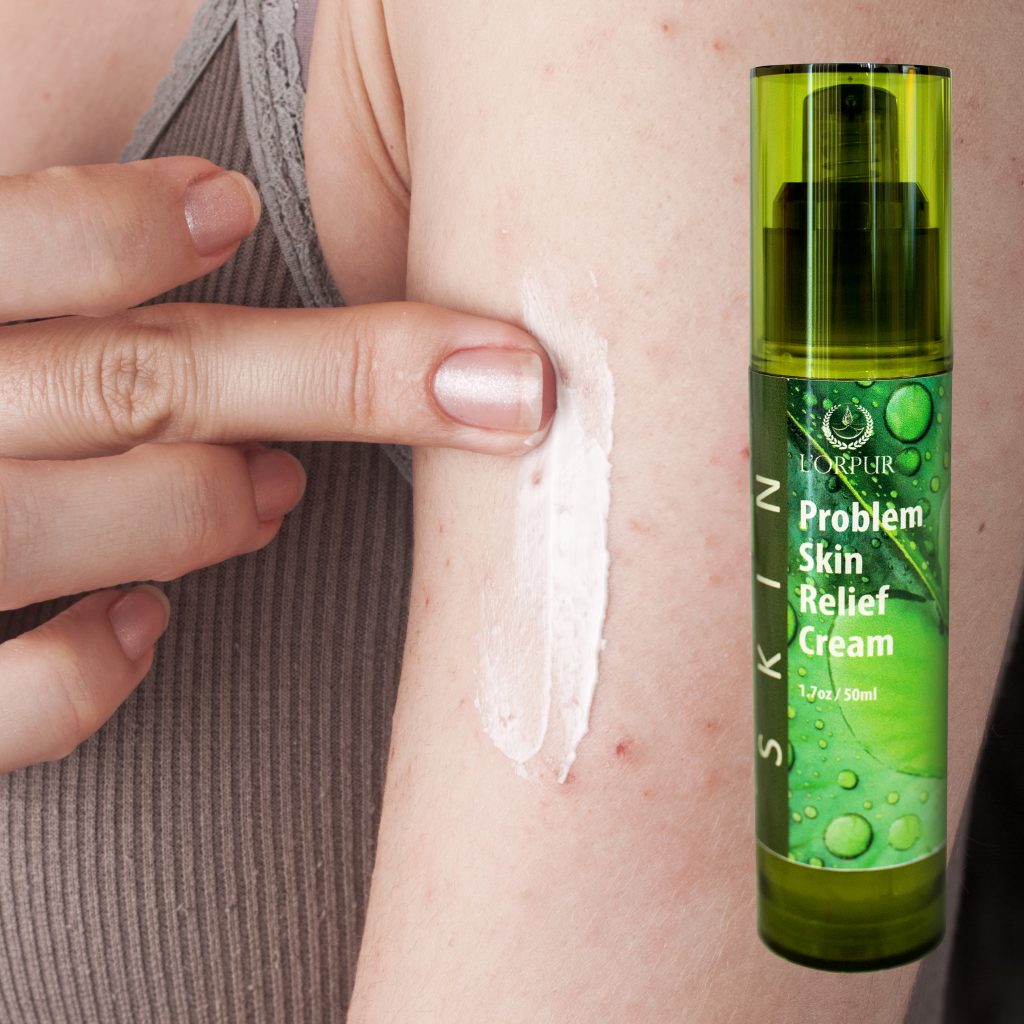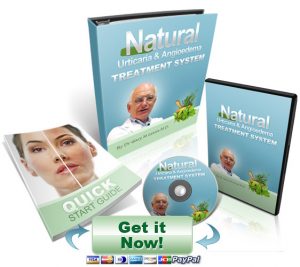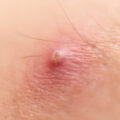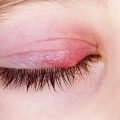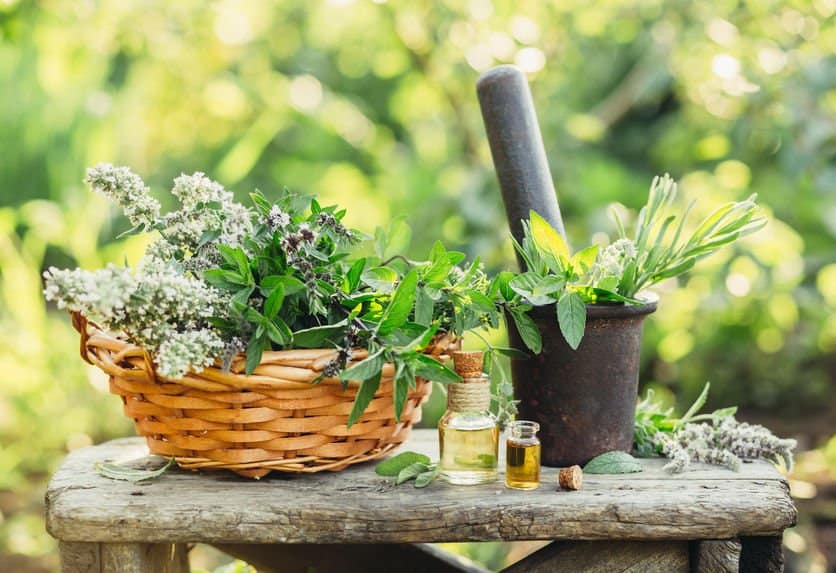
Imagine going to bed looking all smooth and sexy only to wake up with an entire colony of red, raised bumps and blotches all over your skin. What’s more, these welts won’t stop itching even if your life depended on it.
Well, it turns out that most of us here don’t have to imagine because according to the American College of Allergy, Asthma & Immunology, over 20 percent of the population has been affected by hives at some point during their lives.
The good news is that most hive outbreaks only last for a few days and don’t typically leave any long-lasting damage to your skin… (Or do they?)
Maybe there’s a certain strain that could leave you scarred and scaly for life; passing through your lineage for generations and generations to come. Or perhaps there’s another evolved strain that will never stop swelling until it takes over your entire skin surface?
I guess you’ll just have to stick around and find out now, won’t you? That’s right, if you thought this was your regular, boring, segment on hives – you thought wrong. Why? Because I’m taking you hostage in this mother of all guides on everything you need to know about hives.
But first, what exactly are these hives? Do they have any similarity to what bees and wasps call home? And if so, can you invite a colony of bees to live in your hives and pay you a monthly stipend in honey? All great questions.
I’ll also be looking at what causes this skin condition, its symptoms, an assortment of treatments as well as some pretty effective home remedies to try out. As for all you naturalists and environmentalists, I’ll let you in on nature’s best-kept secret for treating hives (it’s essential oils guys, I suck at keeping secrets), and some age old recipes that will help you put the oils to good use.
So stick around guys, and try not to scratch too much; plenty of good stuff coming your way.
What Is Hives?
But first, what exactly are these hives?
And what does hives look like? Have a look at some of these pictures to get a clearer indication.
Also referred to as Urticaria, Hives is a type of skin rash that causes red, raised, itchy bumps on your skin surface. It starts as an itchy patch of skin that quickly turns into swollen welts which often move around and can be found on any part of the skin including face, lips, throat, tongue, ears, arms, torso, and legs.
Hives can range in size from pimples as small as a pen tip all the way to blotches larger than a Thanksgiving dinner plate. More often than not, the condition is often accompanied by burning, stinging and itching sensations. Hives usually clear away on their own in 24 hours or less, but new ones tend to form as old ones fade; making the condition last for a few more days.
About 5 percent of hive cases have been known to stretch out for over six weeks – leading to a condition known as chronic hives. This outbreak of swollen, pale red wheals or plaque on the skin can appear suddenly either as a direct result of the body’s reaction to allergens, but there are also a myriad of other factors that can cause hives. We’ll look into that later on, but first, a list of some of the most common signs and symptoms of hives.
Signs And Symptoms Of Hives
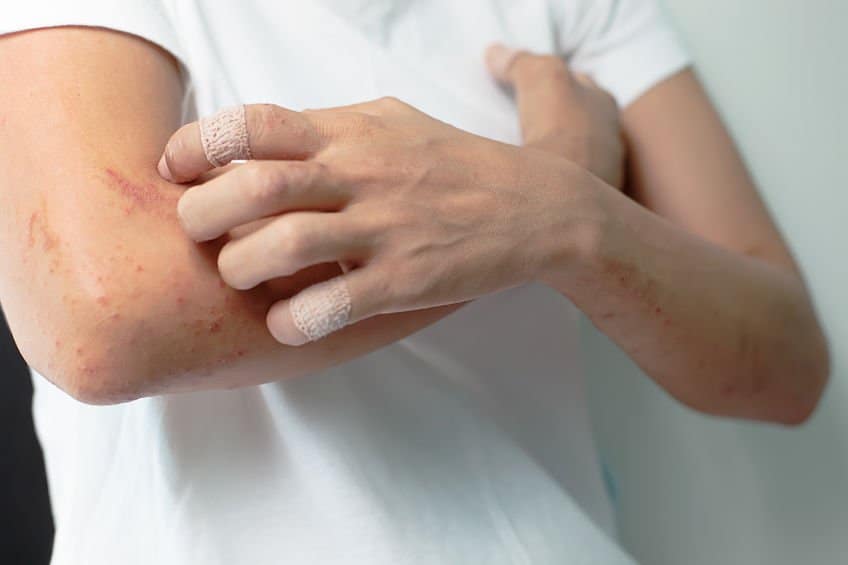
- Red, raised spots or blotches on the skin
- Welts that occur alone, in a group, or connected over a large area
- Itchy, burning or stinging sensation on the blotches
- Blanching (center of the hive turns white when pressed)
- Skin swelling that subsides within a day and appears at another spot
In cases where the hives appear as a result of allergens, then the symptoms may escalate to Anaphylaxis in a matter of minutes. Anaphylaxis is a highly severe allergic reaction that can affect your whole body. Not only can it lead to serious breathing difficulties, but it can also cause loss of consciousness and even death. In the event of hives, watch out for additional symptoms such as:
- Nausea and vomiting
- Swelling around the throat, tongue, lips and mouth lining
- Difficulty in breathing
- Rapid heartbeat with lightheaded feeling
Causes Of Hives
Hives or Urticaria basically occurs when your body reacts to something that causes it to release histamine and other chemicals from under the skin surface. It’s these chemicals and histamine that cause inflammation and fluid accumulation under the skin. That’s why hives present itself as swollen, raised and red welts. But what exactly are these substances that can cause hives?
As our resident nerd would say, I’ve compiled and classified all the purported causative agents related to urticaria. But for all y’all other laymen, here’s a look at all the culprits behind your red, raised, swollen welts of dismay.
i) Medication
Just when you thought that medicines were meant to cure, here comes a massive blow to western medicine. There is an entire lineup of drugs that have been known to cause allergic reactions evidenced as hives. These include aspirin, trichazole, penicillin, ibuprofen, codeine, cefaclor anticonvulsants, piracetam, sulphonylurea, antidiabetics and some vaccines. More often than not, drug induced urticaria tends to have adverse effects such as severe cardiorespiratory failure.
ii) Food
To be more specific, food allergies. Some foods have been singled out as highly likely to cause allergic reactions that manifest as hives. The most common food allergies in many adults include an assortment of nuts and shellfish. As for kids, turns out the most common allergies in food include nuts, shellfish, soy, wheat, eggs, milk, and some citrus fruits.
iii) Cholinergic or Stress
Cholinergic urticaria is one of the physical forms of hives that is provoked during events such as exercise, bathing, heated environments or even emotional stress. This type of urticaria is usually smaller than classic hives and generally shorter lasting.
iv) Solar and Water Induced Hives
Also known as Solar Urticaria, this form of hives form when certain areas are exposed to the sun for prolonged periods. This form of disease normally becomes evident within mere minutes of exposure. Water urticaria, on the other hand, is much rarer than solar and happens immediately upon contact with water. The appearance of hives is usually within minutes of contact and can last anywhere between 10 minutes to hours.
Treatment, Cures And Remedies For Hives
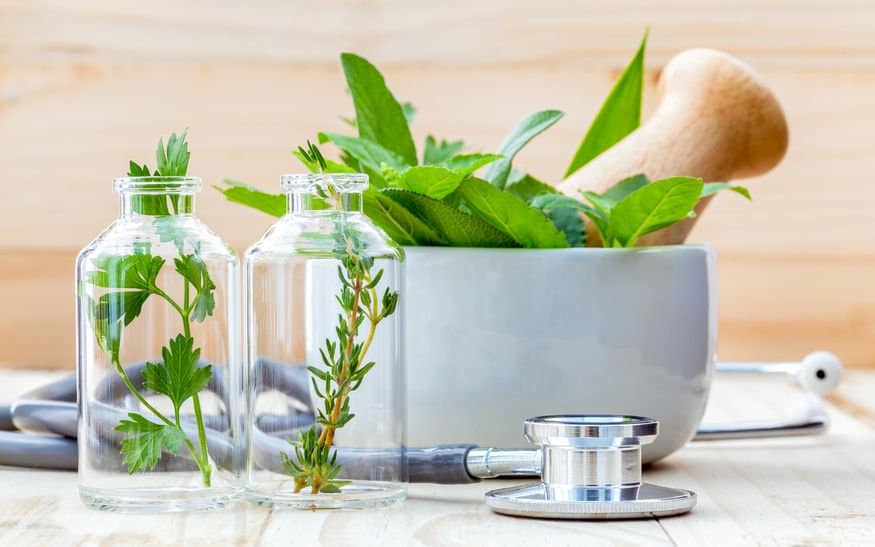
As you would expect, the treatment of hives depends on what type of urticaria you have. The mainstay management techniques for both acute and chronic urticaria usually involve avoiding triggers, patient education and some medication here and there. However, chronic hives tend to be much more difficult to treat and could lead to significant disability if left unchecked.
According to the American Practice Parameters, the treatment guidelines for the management of chronic hives involves a stepwise approach.
- Step 1 consists of second generation H1 receptor blocking antihistamines combined with Systemic glucocorticoids for severe episodes.
- Step 2 involves either increasing the dosage, adding other antihistamines or using a leukotriene receptor antagonist.
- Step 3 usually involves replacing or adding to the current treatment with doxepin or hydroxyzine. Let’s look at the different treatments for hives.
1. Antihistamines
These are usually the first line of defense in the fight against urticaria or hives. Antihistamines such as hydroxyzine, loratadine, or Benadryl block both the central and peripheral histamine H1 receptors for a sedating effect. For maximum impact, however, it is advisable to take antihistamines as daily doses instead of acute exacerbations.
2. Systemic Steroids
When it comes to controlling and managing the symptoms of hives, oral glucocorticoids proves to be extremely effective. Unfortunately, they come with an extensive list of adverse side effects such as weight gain, adrenal suppression, hyperglycemia, osteoporosis and many more. As a result, their use should only be limited to a couple of weeks.
3. Leukotriene –Receptor Antagonists
Leukotrienes are typically released from cells alongside histamine. Meds such as zafirlukast and montelukast block these leukotriene receptors leading to relief from hives. Ideally, these antagonists work best as add on treatments for urticaria.
4. Other Treatments
Other medications for treating the refractory symptoms of chronic urticaria include omalizumab, anti-inflammatory meds, and immunosuppressants. Anti-inflammatory agents include but are not limited to dapsone, hydroxychloroquine, and sulfasalazine. Immunosuppressants used for controlling hives include sirolimus, tacrolimus, mycophenolate and other calcineurin inhibitors that have proven to be effective against chronic urticaria.
5. Essential Oils
Having seen that every 1 in about 6 people will develop hives at some point during their lives, it pays to know where to get help from. I’ll be the first to admit; hives can be a downright source of pain, anguish, and embarrassment; especially when they sting and itch like crazy.
Sure, all the above medications and creams might give you temporary relief, but they really don’t solve the root cause of the problem. Plus, the preservatives, fragrances and other harsh chemicals used could only work to further irritate your skin.
Ditching these prescription drugs and medications for all natural treatments comes with numerous benefits. And if we’re talking hives, then nothing beats good old essential oils.
Essential oils boast of anti-inflammatory, anti-fungal, antiallergenic and insecticidal properties that not only help cut down the swelling, but also soothe the pain and itchiness that comes with hives. So if you’re looking to provide instant relief from irritation, restore your skin to its previous condition and manage hives for good, then you’ll need the following essential oils to do it.
8 Best Essential Oils For Hives
1. Peppermint
Packed with antifungal, insecticide, antibacterial, antimicrobial and anti-allergenic properties, peppermint essential oil makes for one heck of a remedy against hives. Not only do all these properties facilitate faster healing, but they also help reduce the pain and any itching sensation.
The reason why peppermint makes it to the top of this list is because it has one special component that gives it an edge over the rest. Menthol – It’s this main component of peppermint oil that allows it to have an incredibly powerful cooling effect on the skin. Similarly, inhaling the peppermint essential oil in a diffuser can help unclog the sinuses and offer relief to scratchy throats in the event of allergy-induced urticaria.
2. Myrrh
Introducing one of the ancient and very holy oils, Myrrh essential oil has been long known for its healing properties. In fact, it was used even in biblical times thanks to these healing properties. Myrrh contains anti-inflammatory, antimicrobial, antiseptic and fungicidal properties that are responsible for eliminating any bacteria and fungi responsible for causing hives. These properties also allow Myrrh to calm down inflamed skin offer soothing relief for burning and itching sensations.
3. Lavender
It’s been said time and time again; if there’s one oil that any naturalist can’t afford to miss, it would have to be lavender. That’s because lavender essential oil is without question one of the most diverse, medicine packed oils with unrivaled therapeutic benefits. This particular oil boasts of analgesic, anti-inflammatory, antiseptic, antimicrobial, antispasmodic and many other properties that all help safeguard your skin against irritants, microbes, infections, and hives. Using this oil will help offer relief from chronic urticaria and the resulting inflammation, swelling, redness, and itching.
4. Basil
Here’s another oil whose plant of origin barely gets viewed as anything other than a food seasoning. Basil essential oil has been proven to contain properties that help detoxify the body of urticarial causing bacteria and viruses while also cutting down on inflammation, pain and general fatigue. Basil oil achieves all this by supporting the adrenal glands and helping your body react appropriately to any threat by rushing blood to the brain, heart, and muscles.
5. Tea Tree
Very rarely have I compiled a list of best essential oils and failed to include Tea Tree. That’s because it contains outstanding health benefits and medicinal properties such as antimicrobial, antiseptic, antiviral and analgesic. All these properties make Tea tree essential oil a multi purpose oil useful for treating acne, shingles, and most importantly, hives.
Using a bit of Melaleuca essential oil will help efficiently curb all activities of hive-causing microbes, alleviate skin inflammation and itching while also preventing any further infections and outbreaks. What’s more, you also get full protection from sunburns, reduced blemishes and boosted immune functions.
6. Chamomile
Generally, the two types of chamomile oil (Roman and German) are both suitable for treating hives. But just like all German machines, German chamomile oil proves more effective and yields better result as an anti-inflammatory agent. Using it helps combat all the symptoms of hives such as inflammation, swelling, irritation, redness, itching, and pain. Apart from treating urticaria, Chamomile essential oil also works wonders for acne, eczema, psoriasis and other skin conditions.
7. Lemon
Chock full of antioxidant, anti-inflammatory, antiseptic and therapeutic properties, lemon essential oil is also a great solution for hives; especially those caused by insect bites. Not only does it inhibit the growth of urticaria-causing bacteria, but it also boosts the immune system for faster recovery. Similarly, the oils also soothe itchy skin and keep harmful insects at bay.
8. Helichrysum
Apart from being a mouthful, helichrysum essential oil is a natural anti-allergenic antiseptic, antispasmodic and anti-inflammatory agent. All these properties make it more than ideal for treating a wide range of skin conditions, including hives. Using this oil will help heal the rash, reduce inflammation, calm irritation, prevent itching and also soothe any bug bites. What’s more, helichrysum also acts as a cooling agent for your skin.
4 Top Essential Oil Blends And Recipes For Hives
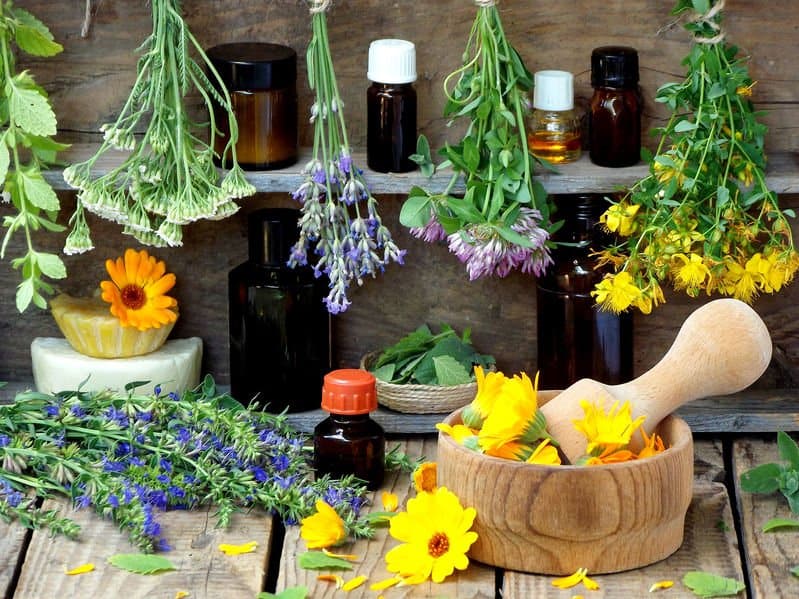
Recipe 1: Fast Action Chronic Hive Blend
What you’ll need:
- 20 drops German Chamomile essential oil
- 15 drops Lavender essential oil
- 2 ounces of Coconut oil or Almond oil
Method:
This blend is ideal for anyone who suffers from chronic urticaria or anyone prone to getting hives from their allergies. Mix all the above ingredients in a large bowl and pour into a dark, glass bottle for storage. Whenever you see any hives coming on, shake your blend well, add 5 to 10 drops on a clean cloth and dab on the affected area a few times a day for instant pain relief, inflammation reduction and faster healing.
Recipe 2: Nose, Throat, and Mouth Hives Relief Recipe
What you’ll need:
- 5 drops Peppermint essential oil
- 5 drops Helichrysum essential oil
- Diffuser
Method:
Adding 5 drops each of peppermint and helichrysum oil into your diffuser blend should help offer relief for swollen, clogged throats and the respiratory system at large. It will also help relax the nasal muscles and bring a cooling and calming menthol effect. You’ll be diffusing at least once a day, that’s why you’ll need to keep your bottles of essential oil close by.
Recipe 3: Grandma’s Basil Soup for Hives
What you’ll need:
- 3 drops Basil essential oil
- Hot Soup
Method:
Turns out that the cliché about Basil being only useful as a seasoning is true. Adding 3 drops of Basil essential oil to chicken or veggie stew every day will help fight inflammation and prevent the immune system from overreacting. Make sure you check with your doctor first prior to ingesting any essential oil.
Recipe 4: Nighttime Therapy Cream for Hives
What you’ll need:
- 20 drops Lemon essential oil
- 10 drops Sweet Orange essential oil
- 6 drops Myrrh essential oil
- 2 ounces of carrier oil
- Petroleum jelly
Method:
Like all other citrus based oils, lemon and sweet orange essential oils are highly photosensitive. That’s why this blend should be used only at night when you go to bed. Mix all the essential oils with your preferred carrier oil (jojoba, coconut, almond) thoroughly. Next, whisk some petroleum jelly with the oils until you get a thick consistency. Apply to the affected area every night, preferably before hitting the sack.
3 Home Remedies For Hives

1. Avoiding the Allergens
If your hives are caused by allergens, then the best possible remedy you could try is to avoid these triggers at all costs. Some of the triggers for hives include certain foods, medications, insect bites, latex, pollen, pet dander and some plants. Once you know the triggers, you can avoid getting urticaria altogether.
2. DIY Topical Remedies
To calm hives and help the skin heal much quicker, it’s important to address the inflammation, itchiness, and swelling. Fortunately, there are plenty of DIY remedies that you can use as topical remedies. These include:
i) Homemade Cold Compress
According to numerous industry leading skin allergy specialists, cooling things down might possibly be the best topical natural remedy for hives. Cold temperatures help shrink the blood vessels and block out any further release of histamine. This, in turn, helps alleviate any swelling, inflammation, and itching too. To make your own DIY cold compress, just wrap some ice cubes or a bag of frozen peas in a cloth and place over affected area for about 20 minutes four times a day.
ii) Oatmeal Bath
Thanks to its anti-inflammatory, anti-irritant and soothing properties, oatmeal is one of the best natural remedies for treating urticaria. Just grind up your regular rolled oats and pulse until you get a thick powder. Pour two cups of the stuff in every bath every day and soak for as long as you want. Not only do these baths clear unwanted eruptions for adults and children, but they also offer relief for itching.
iii) Baking Soda Paste
Largely known for its nahcolite properties, baking soda has been used since ancient times as a cleanser and soother. That’s why it’s a naturally great option for treating hives. Add enough water to baking soda to form a thick paste and work over the affected area as needed. Rinse off afterwards with cold water.
iv) Apple Cider Vinegar
Vinegar’s been getting a lot more action outside the kitchen lately, Apple cider vinegar to be specific. Its antihistamine properties allow it to relieve inflammation quickly and give your immune system a jump start. Vinegar also plays a crucial role in restoring your overall natural skin health. You’ll need to pour a tablespoon of vinegar to a cloth and apply the mixture to your hives for pain, itch and inflammation relief.
v) Stinging Nettles
Looking at this remedy, it’s clear as day that Mother Nature also has a sense of humor. Who would think that one of the most ferociously stinging plants could be used to cure hives and itching? Well, it turns out Nettles are natural antihistamines and work great for ridding the skin of toxins. You can either make a tea using nettle powder and hot water or soak a cotton ball in nettle tea and use it topically.
3. Acupuncture
If you’ve been dealing with chronic hives all your life and have tried virtually all treatments and remedies, there is one more option for natural hives treatment. Acupuncture is a holistic health technique that stems from ancient Chinese medicine practices.
Acupuncture not only provides immediate relief from itchiness and inflammation, but it also aims at getting to the root cause of your hives; including any triggers or imbalances causing the urticaria. The most common acupuncture points for hives include the spleen (SP 10), and the large intestine at point LI 11.
Recommended Product for Hives
Product 1:
The L’orpur Problem Skin Relief Natural Cream is designed to treat and prevent recurrence of difficult skin conditions including itching, skin rashes, etc. It has unmatched anti-bacterial and healing properties and provides instant and long-lasting relief for itchy, raised, red or skin-coloured welts, swelling, inflammation and flare-ups.
Product 2:
Click On The Image Below To Start Your Natural Hives / Urticaria / Angioedema Treatment
The Final Word
There you have it folks, all you need to know about hives right at your fingertips. Hives might be unpleasant, but the good news is that they are typically not serious and tend clear away on their own in a matter of days. Which should be even quicker with the remedies I’ve shown you above.
My work is done, the rest is all up to you. Remember to see a doctor if the symptoms don’t clear away and most importantly, try to relax – stress will only put you at a higher risk of getting hives.
